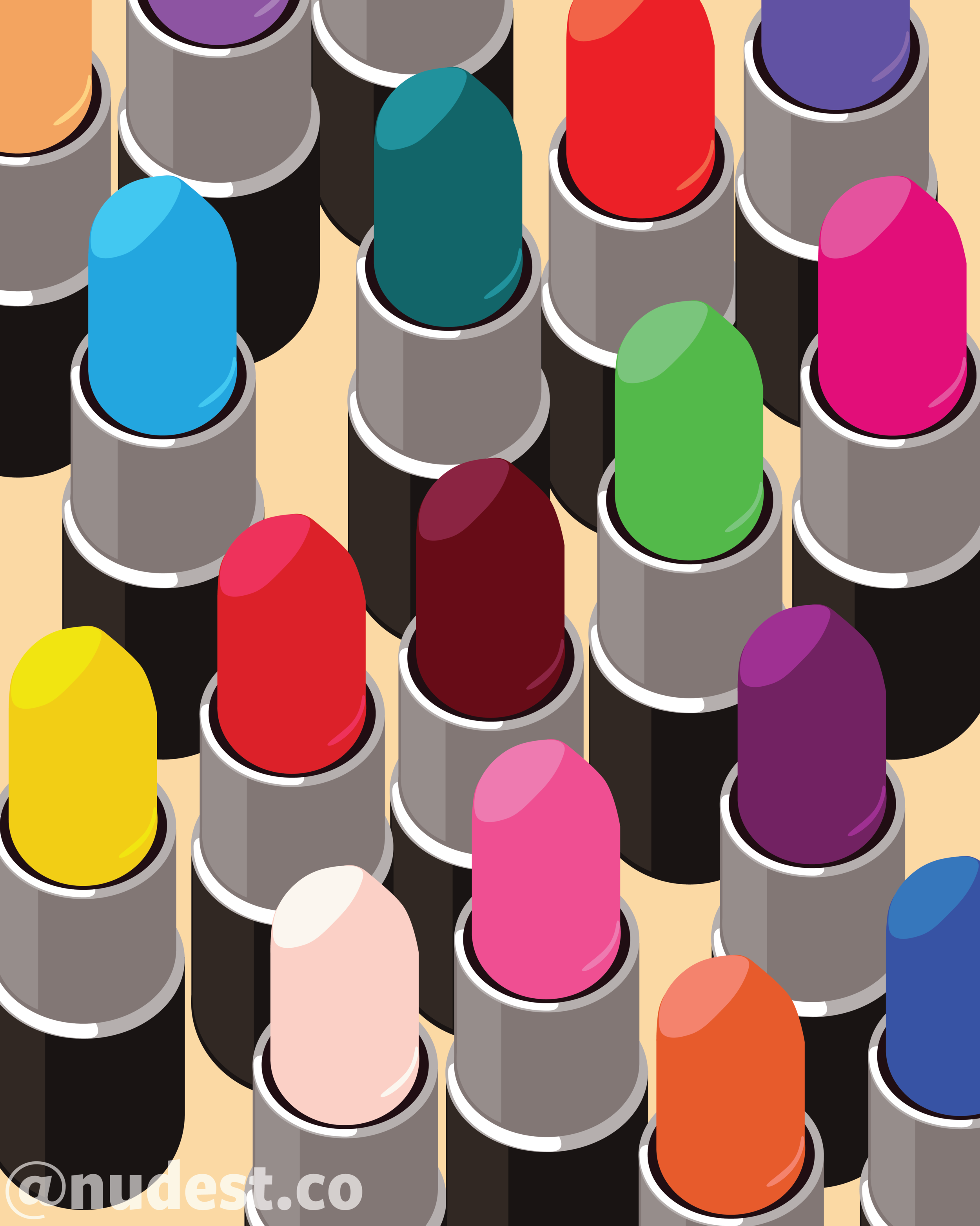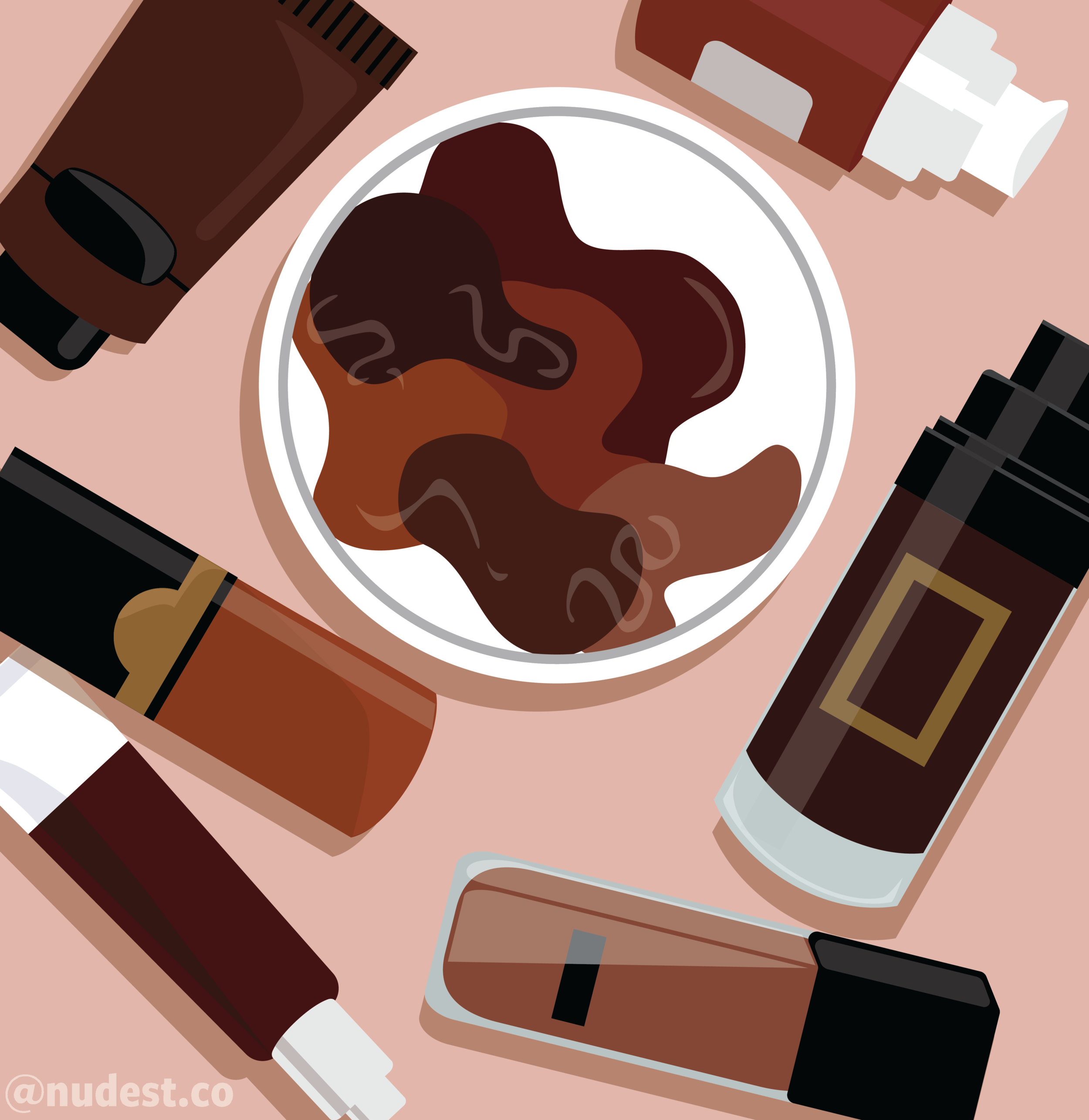The Lipstick Effect: Beauty Advertising and You
The first time I left the apartment in a bold lipstick, I was 15 years old and had just cut off all of my hair. As I stood pressed against the bathroom mirror slicking on a vampy red lip, my mother’s voice startled me. “What are you putting lipstick on for?” “It’s picture day at school,” I explained. She shook her head and laughed, but let me continue smudging the waxy color across my lips. There’s an assumed beauty that comes with a full head of hair, and at the time I felt like I needed the lipstick to compensate for my lacking of it. Even now, lipstick is still my weapon of choice when I want to feel extra good about myself.
According to a 2017 study from Harvard Medical School, this boost of self-esteem that comes with rocking that perfect lip is called “the lipstick effect,” a psychological phenomenon in which wearing makeup creates increased confidence and attitude by making the wearer feel more physically attractive.
While informative, this research yields some problematic results, particularly about how society has been conditioned by the beauty industry to attach self-worth to physical attractiveness. Five years before the publication of this study, author Anne Marie Britton wrote, “From a young age, girls are taught to experiment with makeup to increase their attractiveness. Different amounts can be applied as needed, and works as a temporary boost in self-esteem.”
The toxic way makeup has been marketed -- reinforcing strict and impossible standards that make an individual feel like they have to wear makeup to feel good about themselves -- makes it impossible for many people to ever achieve “being beautiful.” Instead of promoting uniqueness and natural beauty, this billion dollar industry profits off of women’s insecurities.
“What is so appealing to most women about cosmetics is that it can be a quick an[d] easy way to temporarily solve beauty problems,” Britton continues. “...Because it can be applied so quickly and is relatively easy and inexpensive compared to other more drastic measures such as diet, exercise, or cosmetic surgery, cosmetics have become an easy way to measure up to the standards of beauty enforced by society.”
Recently, in an effort to reclaim their self-image, many are forsaking their brushes and beauty sponges, instead opting to embrace natural beauty. Despite what photoshopped makeup ads are showing, they’re becoming comfortable in their own skin, regardless of acne, scars and wrinkles.
Others, however, are actively working to find a balance between makeup that enhances beauty and makeup that masks insecurities. Newer beauty brands are beginning to align themselves with this mentality as well, catering to a more diverse customer base and promoting an inclusive brand image.
Companies like SK-II and SPKTRM have banned retouching in their promotional ads, with SK-II model Chloë Grace Moretz saying "I hope that a 13-year-old girl on Instagram sees it and will know that I'm not retouched. She'll realize that you can go out with bare skin and be who you are and not hide behind these false ideals of what beauty is."
Mented and The Lip Bar are creating nude lipsticks for people of all skin tones, eliminating the notion that there’s only one color of skin meant to be beautiful. These brands’ websites feature models of various skin tones, an array of lipstick colors and quizzes to find the nude lipstick to match skin colors. Wearing makeup isn’t for fixing the face to look one way, but rather for highlighting each person’s unique beauty.
Wearing lipstick shouldn’t be about making yourself look good for others; it’s about learning what makes you feel good about yourself. It’s a journey of self-love and true expression, like so much else in your life. You should find beauty products that work for you, and not the other way around.




